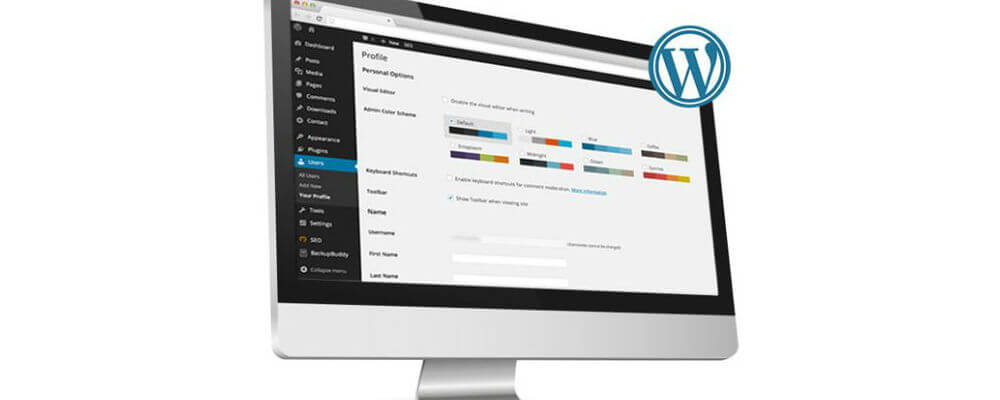If you’re looking to create your own website, there are two routes you can take. The first option is to use what’s known as a Content Management System (CMS), such as WordPress or Drupal. The second option is to use a website builder, such as Squarespace or Wix.
Though the two share similarities, they offer completely separate solutions depending on the needs of the user. Understanding the differences between CMSs and website builders will help you to determine which option is best for you and your organization.
What Is a CMS?
A content management system is online software that lets you create easily manageable websites by leveraging a pre-built framework. When using a CMS, you can purchase pre-designed, customizable themes, which reduce the need for users to have in-depth coding skills to effectively manage a website.
The beauty of content management systems is they give the user a massive range of flexibility and scalability because of their in-depth customization options. CMS systems require a steeper learning curve when compared to website builders, but this is offset by the amount of control you’re given over your website.
If you’re the owner of a small business, choosing a reliable CMS to build your website will likely be the best option. If you don’t have the expertise to set one up on your own, you can hire a web developer for a more state-of-the-art web design.
Pros of Using a CMS
- Improve functionality with plugins – Nearly every CMS allows you to install plugins to increase the features your website can offer for both your business and your visitors. For example, if you want to collect emails on your homepage, you can simply install a plugin that prompts a pop-up to appear and collect the information you require from your visitors.
- Choose from thousands of attractive themes – Website builders may excel when it comes to ease of use, but content management systems have their own theme options that allow you to set up your website with minimal technical knowledge. Some CMS themes even come with their own drag and drop features, making them just as easy to use as website builders.
- Offers greater customization – Content management systems allow access to the underlying code, allowing you to make specific changes you wouldn’t be able to make when using a website builder. Even if the theme you’re using limits a specific function, you can simply dig into the code and tweak it until you’re satisfied. This helps blur the line between custom web design and website templates. If you don’t have the expertise to do this on your own, you can find a web designer to make the changes on your behalf.
Cons of Using a CMS
- Steep learning curve – When compared directly to website builders, CMS platforms have a much steeper learning curve. You’ll have to acquaint yourself with a full management system, meaning you’ll have to learn all the ins and outs to use the system to its full potential.
- Working with hosting solutions – Content management systems require that you find a hosting solution for your website. Sites such as Bluehost and GoDaddy are the most popular options, but they also add another layer of complexity to the equation of getting your website up and running.
What Is a Website Builder?
Website builders are easy to use tools that use pre-built components to create a fully functional website. Most website builders use a drag and drop function, which allows you to change the layout of your website with ease.
Once you’ve had a little bit of practice, you can create websites that aesthetically appear as if they’ve been built by a professional. Website-builders such as Wix and Squarespace come equipped with pre-built website templates that are created to suit a wide variety of needs.
While website builders are easy to use, they lack the flexibility offered by a CMS because they’re limited by the platform (Wix for example) which can only be customized to a certain extent. For a more in-depth look at the differences between a CMS and a website builder, check out this comparison between Wix and WordPress.
Pros of a Website Builder
- Easy to use – Frankly, the most attractive feature of website builders is their ease of use. Zero coding knowledge is required, and streamlined tools allow you to easily set up your website with drag and drop functionality.
- Cheap and fast – Website builders provide a quick and inexpensive solution to your website problem. They’re the ideal choice for those who are putting together their first website. Furthermore, they’re cheaper than paying the costs associated with content management systems. Due to their ease of use, you can easily have a website up and running in thirty minutes or less.
Cons of a Website Builder
- Not scalable – Website builders are great for those who need a quick and simple website that is aesthetically pleasing, but they wouldn’t work for small businesses and larger organizations that require more complex websites. Website builders lack the advanced features of a CMS, which not only gives businesses more control of their website but also allows them to scale when the need arises.
- Limited customization – Website builders offer plenty of customization options, but you’ll eventually hit a wall (this is where scalability issues come into play). Websites may need to change and add features as the needs of the business evolves over time. This will eventually become a problem for businesses that decide to use a website builder as opposed to a CMS.
Is WordPress a website builder or CMS?
Is WordPress a website builder or a CMS? From the surface, it can be difficult to answer this question, because WordPress shares similarities with both sides of the spectrum. However, WordPress is an open-source content management system due to its customization options (amongst other reasons).
You can either install WordPress as part of a web hosting service, or you can download it to be hosted on your own network. Unlike a website builder, WordPress requires a bit of a learning curve to master. Contact MARION for more help with your WordPress web development.
Once you’ve worked out the details (hosting, installing WordPress, installing a theme, etc.) WordPress is still relatively simple to use.
How to Find out Which CMS a Website is Using
Knowing which CMS a website is using can be very useful. You could also use this information to generate leads. Knowing that a website uses WordPress as their CMS, for example, could allow you to reach out to them and offer your own custom theme instead. Or perhaps a competitor has a fantastic website, and you’d like to use the same CMS to help level the playing field.
Tools known as CMS detectors, such as Builtwith and W3techs, are the best way to find out which CMS a website is using. Both tools are easy to use, and they provide information that includes lead generation, hosting information, report filtering and much more. You simply copy and paste the website URL in question, and the CMS detector will give you a list of tech that the site is using.
CMS vs. Website Builder – Which is right for you?
Understanding the differences between CMSs and website builders will help you to identify which is the right choice for you. Ultimately, your decision will be determined by the needs of your organization.
If you need a quick and simple website that’s cheap and you don’t mind limitations in terms of customization options, then a website builder will be the best choice.
On the other hand, if you’re a small business owner or marketing director looking to build a website that gives you greater control and allows you to adapt and scale as your website needs change, you’ll most certainly want to choose a content management system.
MARION is a full-service marketing agency that offers highly rated marketing and custom web design in Houston and Austin. We understand the complexities of working with content management systems. Not only will we drive customers to your website, but we will also optimize your site for conversation, ensuring your revenue stream continues flowing day and night.
Contact us today so we can start transforming your website into a business growth tool!







